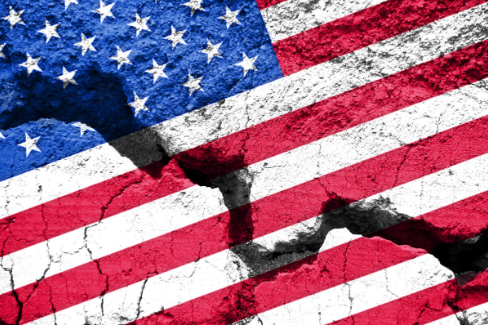When other countries hear about America’s democratic troubles, they like us less—but they’ll still work with us. That’s the key finding from new research examining how U.S. democratic decline affects its image abroad, particularly among allied democracies.

While news about events like the January 6th Capitol riot and controversial voting laws damages America’s favorability ratings, it doesn’t seem to reduce foreign public support for cooperating with the U.S. on important policies.
For years, foreign policy experts have warned that eroding democracy at home might weaken America’s position internationally. This study, the first of its kind to test this theory experimentally, suggests the reality is more complicated.
Researchers from Dartmouth College, Florida State University, and Australian National University conducted three survey experiments spanning 12 countries across Europe, Asia, and the Anglosphere, polling nearly 12,000 people. They randomly assigned some participants to read about U.S. democratic backsliding before asking about their views toward America.
The backsliding information described problems like the Capitol insurrection, voting restrictions, and growing political polarization. Control groups received no such information. In later studies, some participants also read about U.S. economic problems instead of democratic ones.
Across all experiments, those who read about democratic backsliding consistently rated the U.S. less favorably than those who didn’t. The decrease in favorability was moderate but meaningful—about 42% of a standard deviation on the rating scale.
Interestingly, when people read about U.S. economic problems rather than democratic ones, their opinion of America didn’t significantly change. This suggests there’s something particularly damaging about democratic decline for America’s global standing.
The researchers also found that information about democratic backsliding made people rate U.S. democracy lower, view the U.S. government as less stable, and believe America is getting weaker.
But when it came to actual policies, perceptions changed little. In follow-up studies in New Zealand, Japan, India, and South Korea, researchers asked whether people who learned about America’s democratic problems would be less supportive of cooperating with the U.S. on various initiatives.
These policies included whether their country should prioritize economic relations with the U.S. over China, strengthen security arrangements like the Quadrilateral Security Dialogue (the “Quad”), support Ukraine, and other region-specific issues.
“In our exploratory analysis, we find little evidence that it decreases support for cooperating with the U.S.,” the researchers write in their paper. “While America’s global image may suffer from international reporting focused on the degradation of its longstanding democratic system, its ability to garner support for critical policies seems resilient in some important partner countries.”
The findings challenge simplistic views about how “soft power”—the ability to influence through attraction rather than coercion—works in practice. While democratic values help make America attractive globally, foreign publics seem able to separate their opinions about U.S. democracy from judgments about specific cooperation where interests align.







